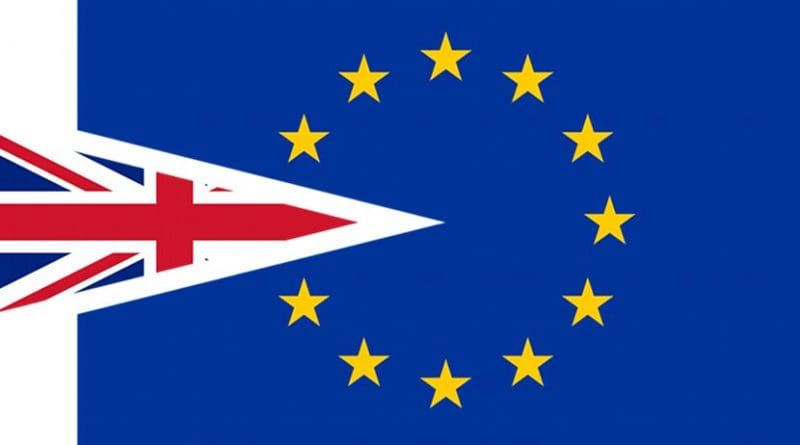EU Revises Energy Efficiency Targets In View Of Brexit
By EurActiv
By Frédéric Simon
(EurActiv) — The European Union revised its 2030 energy consumption objectives on Wednesday (30 January) in order to take account of the United Kingdom’s anticipated departure from the bloc.
The energy efficiency directive, adopted last year, sets an EU-wide target of achieving at least a 32.5% reduction in energy consumption by 2030, a relative objective which remains unchanged after the UK’s departure.
But the absolute figures in million tons of oil equivalent (Mtoe) had to be adjusted in order to take account of Brexit, according to the European Commission, which tabled the proposal last year.
The agreed objective for an EU of 28 member states was to contain energy consumption below 1,273 Mtoe of primary energy consumption and no more than 956 Mtoe of final energy consumption.
“The equivalent projections for the EU27, excluding the UK, result in energy consumption levels of no more than 1,128 Mtoe of primary energy consumption and no more than 846 Mtoe of final energy consumption in 2030,” according to a statement from the Council of Ministers, which represents the EU member states.
“It can be considered a technical adaptation,” the Commission said in its proposal, tabled on 13 November. The European Parliament already backed the proposal and still needs to formally confirm its position during a forthcoming plenary vote.
However, more such adaptations could be required in the future. The European Commission is indeed reconsidering other objectives related to energy and climate policy but won’t formally do so until Brexit actually happens.
“The objectives are being recalculated as part of the ‘Brexit preparedness’ process,” launched in December, said Anna-Kaisa Itkonen, EU spokesperson for energy and climate action.
These include CO2 reduction objectives related to car or maritime transport, as well as the EU’s flagship cap-and-trade system for carbon dioxide.
In December, the Commission announced it would temporarily suspend trading of carbon allowances related to the UK as of January this year until there is clarity on the terms of Britain’s departure from the EU.
As a result, from 1 January 2019, the UK is no longer able to auction carbon permits, allocate them for free to operators, or exchange international credits for as long as the suspension remains in place, the Commission said.

